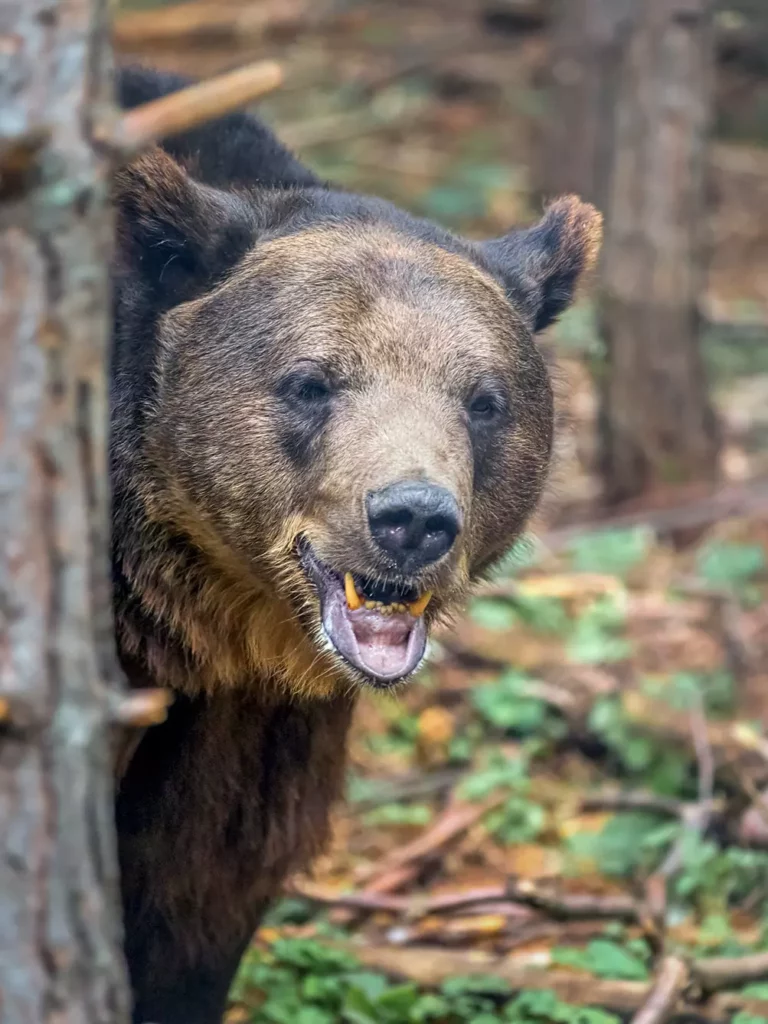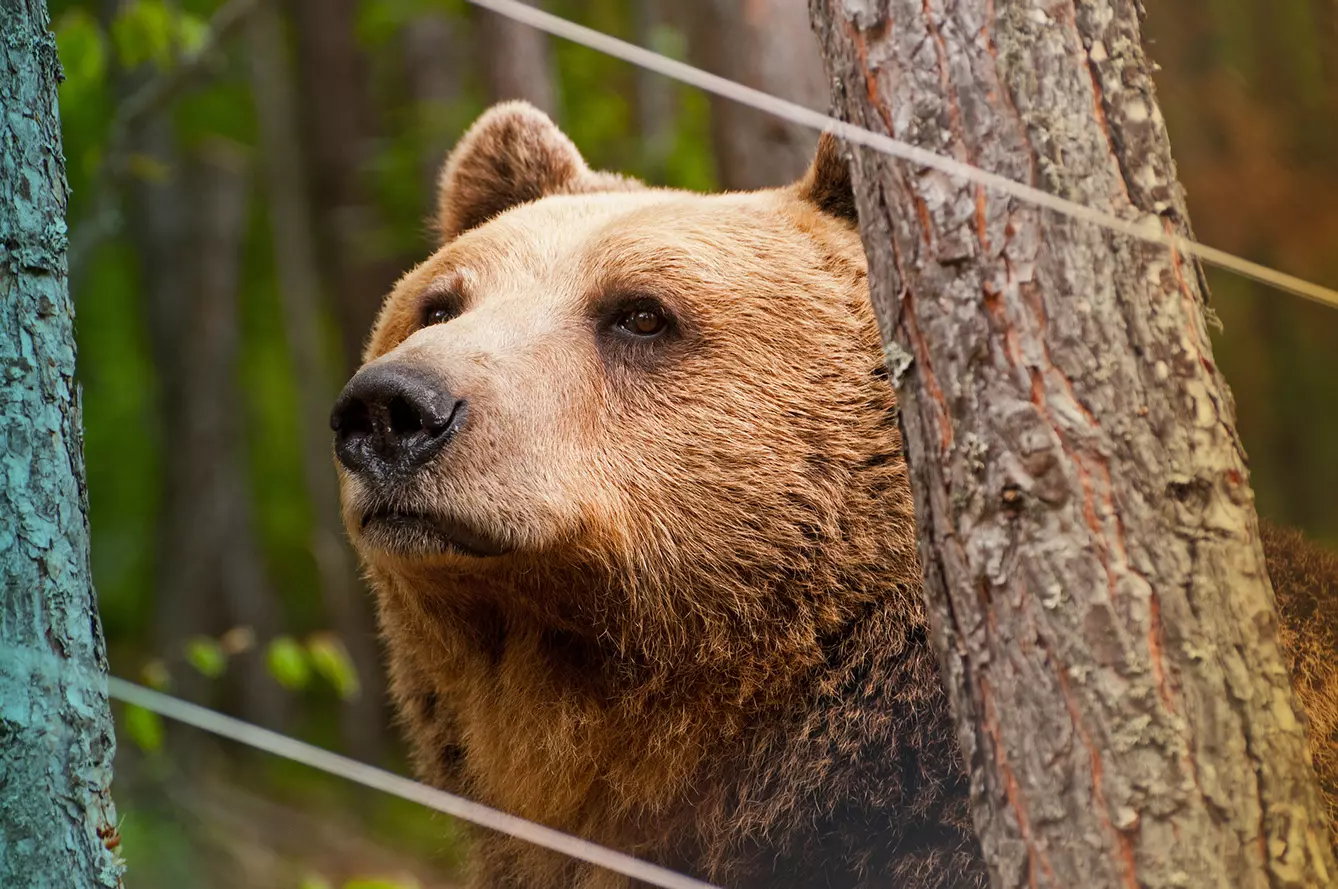The residents of the Bear Sanctuary Belitsa in the southwest of Bulgaria vary in age – from six months to 35 years – but, unfortunately, their life stories are all too similar. Bred in captivity, shackled, living under adverse conditions. Over the past two decades, dozens of rescued brown bears from Bulgaria, Serbia, Albania, and North Macedonia have started their new lives in Belitsa, located in a remote corner of the Rila Mountains. Its existence was made possible due to a partnership between Brigitte Bardot, famous both for her movies and animal rights activism, and the local Four Paws Foundation.
The bear park

“The animals feel great here. The park is an oasis for them,” tells 3Seas Europe Velichka Trichkova, responsible for public relations at the bear sanctuary. “Currently, some 18 brown bears live in the park. The oldest, Natasha, is 35 years old and the youngest resident, Teddy, is only six months old. We rescued him from a zoo in North Macedonia, where he was living in a very small cage.”
Designed by experts in the field of bear behavior and habits, the sanctuary provides ample space for residents to roam on 12 hectares of land without being interrupted by nosy visitors. There are 3-4 bears per sector of the park, each sector covering about 37 acres. In addition to natural perks, such as meadows, sunny spots, and forests, bears also have access to two swimming pools, their favorite summer hangout. As in nature, they also have their own dens.
The bear sanctuary directly responded to a popular attraction that for years has been raising concerns in Bulgaria and beyond – the exploitation of dancing bears. In the 20th century, walking in towns and cities across Eastern Europe, one could stumble upon a chained bear whose job was to entertain spectators for a coin or two.
Belitsa: the dancing bears, rescued
Before becoming dancing bears, the baby bears were taken from their mothers in the wild, kept in isolation, and trained for entertainment by their new owners. Dancing to the music their owners would play on traditional instruments, the bears would also perform extra tricks for the daredevils in the audience, namely, stepping delicately on them as a lucky charm for good health. Occasionally, the bears could also receive a kiss from the members of the audience, all for cash, of course.
The village of Yagoda, near the city of Stara Zagora in southern Bulgaria, is still known for the largest number of bear cubs. For years, the dancing bears would have provided a living for families in this area. Finally, a ban on such practices was put in place in 1998. In 2007, the last dancing bears were brought to their new home in Belitsa, and for the first time in their lives, they had the opportunity to demonstrate their wild instincts and innate behavior, suppressed in their slavery.
Funeral for the (living) bear
“Years ago, the owner of one bear came to visit. Although the bear was blind, he recognized his former master. The man handed him an apple through the fence to eat, but the animal refused. It associated the gesture with something quite traumatic,” shares Velichka Trichkova. As new bears move into the sanctuary, the visits by former owners have ceased to spare animals more stress.
The separation has proved difficult for the families who were keeping the bears, despite being paid up to 5,000 EUR for each rescued bear. To mark the separation, the families would organize funeral-like ceremonies, with women weeping as if they had lost a close relative. The bear owners would even cut down the tree to which the animal was tied to help them forget that their bear was taken away.
Some of the bear masters turned to training monkeys instead, but that didn’t last long. Now, they’ve moved on to producing wooden spoons and blaming Brigitte Bardot for taking away their livelihood. The residents of the sanctuary in Belitsa would beg to differ.







